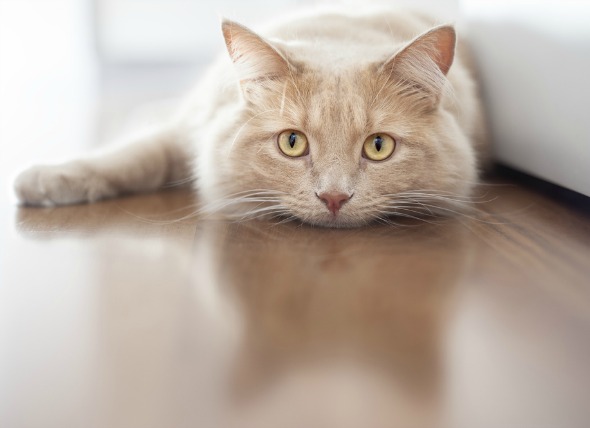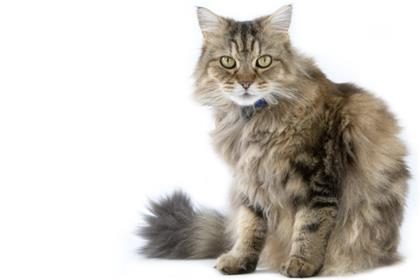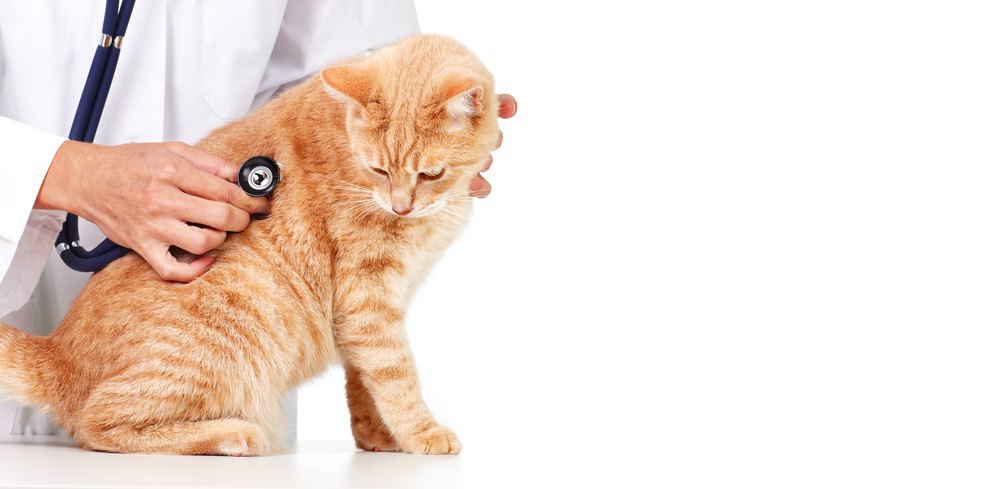

The pancreas is part of the endocrine and digestive system, which is integral for the digestion of foods, producing the enzymes that digest food, and producing insulin. When the pancreas becomes inflamed, the flow of enzymes into the digestive tract can become disrupted, forcing the enzymes out of the pancreas and into the abdominal area.
If this occurs, the digestive enzymes will begin to break down fat and proteins in the other organs, as well as in the pancreas. In effect, the body begins to digest itself. Because of their proximity to the pancreas, the kidney and liver can also be affected when this progression takes place, and the abdomen will become inflamed, and possibly infected as well. If bleeding occurs in the pancreas, shock, and even death can follow.
Inflammation of the pancreas (or pancreatitis) often progresses rapidly in cats, but can often be treated without any permanent damage to the organ. However, if pancreatitis goes long-term without treatment, severe organ, and even brain damage can occur.
Pancreatitis can affect both dogs and cats. If you would like to learn more about how this disease affects dogs, please visit this page in the petMD health library.
There are a variety of symptoms that may be observed in cats, including:
There are several possible causes of inflammation to the pancreas. Some of them are:
One other suspected cause, rare because of its geographical probability, is scorpion stings. The venom from a scorpion can cause the pancreas to react, leading to inflammation.
Unlike with dogs, inflammation of the pancreas is not related to nutritional factors in cats. In many cases, no underlying cause for pancreatitis can be determined.
Although pancreatitis can occur in any animal breed, it has been found to occur more frequently with cats, specifically the Siamese cat. Inflammation of the pancreas is also more common in females than in males, and more common in elderly cats.
Your veterinarian will check for the presence of gallstones, and for a condition referred to as reflux. A full blood work up will be ordered to see if there are any nutrient imbalances, and X-ray imaging will be used to look for evidence of any blunt damage to the pancreas. Pancreatic and liver enzymes will be measured to analyze for increases of either in the bloodstream. Insulin will me measured to check for normal levels, since inflammation can cause insulin producing cells in the pancreas to be damaged, possibly leading to diabetes.
In some cases, an ultrasound will be performed to look for mass tissue growths, cysts, or abscesses in the body. A needle biopsy may also be taken along with the ultrasound.
The results of specific tests for pancreatitis (fPLI or SPEC-FPL) can diagnose many cases of feline pancreatitis, but sometimes exploratory surgery is necessary.
Inflammation of the pancreas can often be treated in your veterinarian's office. Treatment for pancreatitis is essentially symptomatic and supportive and involves fluid therapy, pain relief, medications to control nausea and vomiting, antibiotics, and sometimes plasma transfusions. Because of the close association between intestinal inflammation and pancreatitis, your veterinarian may also prescribe a short course of corticosteroids until a final diagnosis can be made. If the inflammation is being caused by a medication your pet is taking, the medication will be withdrawn immediately.
It is important to restrict your cat’s activity level following any treatment to allow for healing. Your veterinarian may need to prescribe fluid therapy during this time to prevent dehydration.
If vomiting is persistent, drugs will be prescribed to help control it, and if your pet is experiencing severe pain, pain relievers can be given. (Pain medication should only be given with supervision from your veterinarian.) It may also be necessary to give your pet antibiotics as a preventive against infection. In some serious cases, surgery will be used to remove any blockage that is causing the inflammation, to remove large accumulations of fluid, or to remove severely damaged tissue.
Your veterinarian will also want to perform occasional in office examinations to ensure that progress is being made towards healing.
Hydration is one of the biggest concerns and should be monitored within 24 hours of therapy, and then until the cat has fully recovered. Because pancreatitis in cats is not related to the fat content of their food, patients do not need to eat low-fat foods either to treat or prevent a relapse of the disease. Cats that do not eat are at high risk for a disease called hepatic lipidosis. So contrary to what is typically done with dogs, most feline patients are not held off food and feeding tubes may be placed in the course of the disease if the cat refuses to eat.
You are free to offer any type of healthy food your cat will eat, particularly canned (wet) foods, and even high fat foods.
Here are some things to look for in foods:
While these preventative measures will not ensure that your cat does not develop this inflammation, they may help to avoid the medical condition. These measures include:
 Ringworm in Cats
Dermatophytosis in Cats
Dermatophytosis is t
Ringworm in Cats
Dermatophytosis in Cats
Dermatophytosis is t
 Guard Your Plates
While many pet owners only s
Guard Your Plates
While many pet owners only s
 How To Get Your Cat To The Veterinarian At Least Somewhat Willingly
At some point, every cat nee
How To Get Your Cat To The Veterinarian At Least Somewhat Willingly
At some point, every cat nee
 Paralysis-inducing Spinal Cord Disease in Cats
Myelopathy–Paresis/Paralysis in Cats
Myelop
Paralysis-inducing Spinal Cord Disease in Cats
Myelopathy–Paresis/Paralysis in Cats
Myelop
 Face Nerve Paralysis in Dogs
Facial Nerve Paresis/Paralysis in Dogs
Facial ner
Face Nerve Paralysis in Dogs
Facial Nerve Paresis/Paralysis in Dogs
Facial ner
Copyright © 2005-2016 Pet Information All Rights Reserved
Contact us: www162date@outlook.com